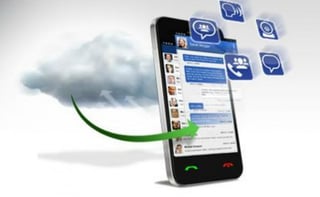Written by PhoneSuite | Thu, May 26, 2016 @ 07:30 PM

Believe it or not, mobile technology is already moving to the next level. 5G, the latest iteration of mobile, will trump 4G's massive data transference capabilities by making true machine-to-machine communication a possibility. This will transform the way that industries of all backgrounds operate -- including the hospitality biz.
While the mass adoption of 5G is not expected for a few more years (2020 being the goal), it's still important to look ahead and start planning for the future. After all, the most competitive hotels are those that remain on the cutting edge of technology. Let's take a peek, then, at what a 5G-enabled "hotel of the future" might look like.
5G: The Future of Hotels
How much impact could a new mobile iteration really have on the hotel experience? A lot. While there are too many possibilities to list, we've compiled an overview look at three of the areas within the hotel industry that are most likely to be impacted by 5G.
The Booking Process -- Today's travelers go online and view 2D images of a hotel's lobby, guest rooms, restaurant, recreational areas, etc. Once 5G rolls out, though, guests will want to have the ability to explore the facility in 3D (think: Google Streetview) and get the lay of the land before booking. 5G will also allow for faster, more accurate data insights regarding the specific hopes, dreams, attitudes, aspirations, and desires of guests, thus enabling them to mold their messaging and services in a way that directly reflects these insights and caters to niche groups of guests. Finally, guests may begin to book hotels based on whether or not the venue is compatible with his or her smartphone. New job positions may emerge as a result, requiring an individual to constantly ensure that all of a property's software is updated, compatible, and logged into a database.
Guest Communications and Interactions -- As 5G unites computers and communication, the end of some of the more traditional hotel staffing positions may be eliminated or altered. The self check-in process will become much more efficient and widely accepted. This might mean that the front-of-house roles actually move back-of-house as hospitality staff handle guest service coordination and relations by communicating via social media and specialized apps intended for organizing room cleaning, room service, etc.
Employee Training -- 5G mobile service could also impact the way in which employees are selected and trained. As it stands, today's generation of hotel staff view smartphone and smart devices as the "norm" for communicating, and the youngest of these are actually more accustomed to learning from a screen than from a book or a training session. As a result, mobile learning will grow to provide real-time, on-the-job training sessions that will be able to analyze a trainee's skill levels and aptitudes as they are learning and performing tasks. This will provide insight as to which candidates are likely to be most successful and how to better train employees.
Staying current and on top of communications trends is essential to your hotel's continued success. Holding onto your old landlines and clinging to the past won't do you any favors when guests start embracing 5G mobile and beyond. The time to make the switch to Voice over Internet Protocol (VoIP) is now. Give PhoneSuite a call to learn more about modernizing your hotel with VoIP today.